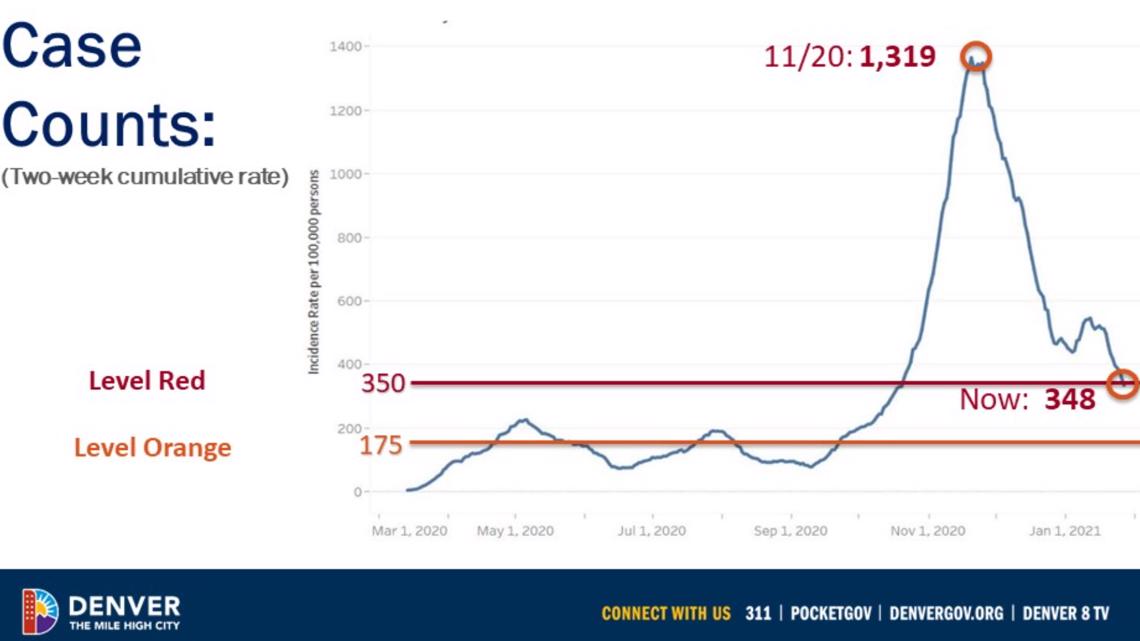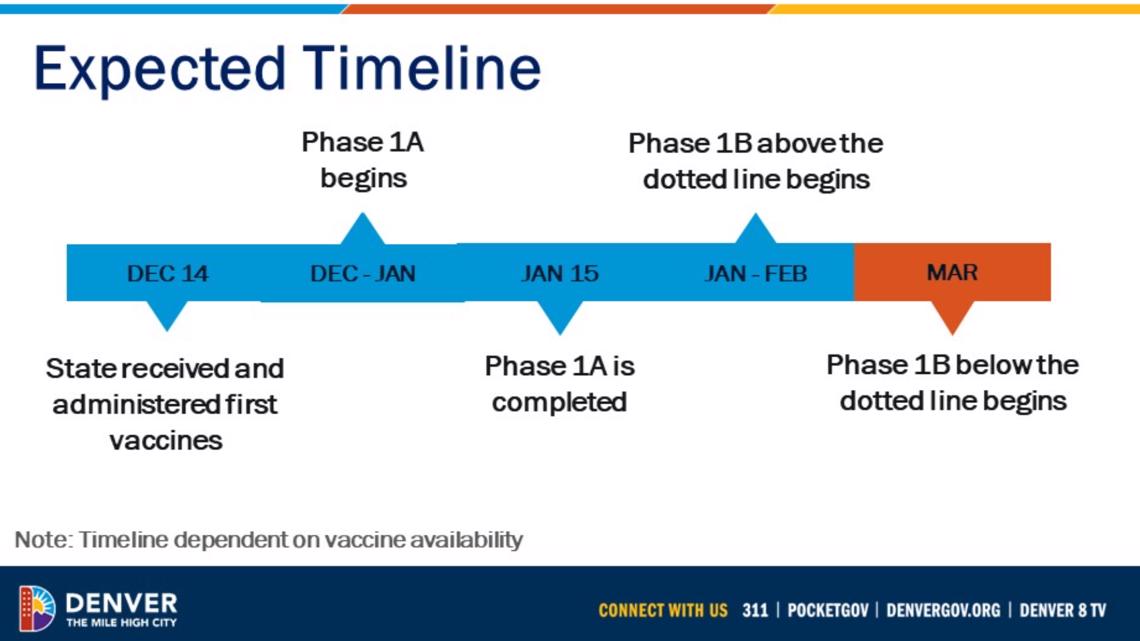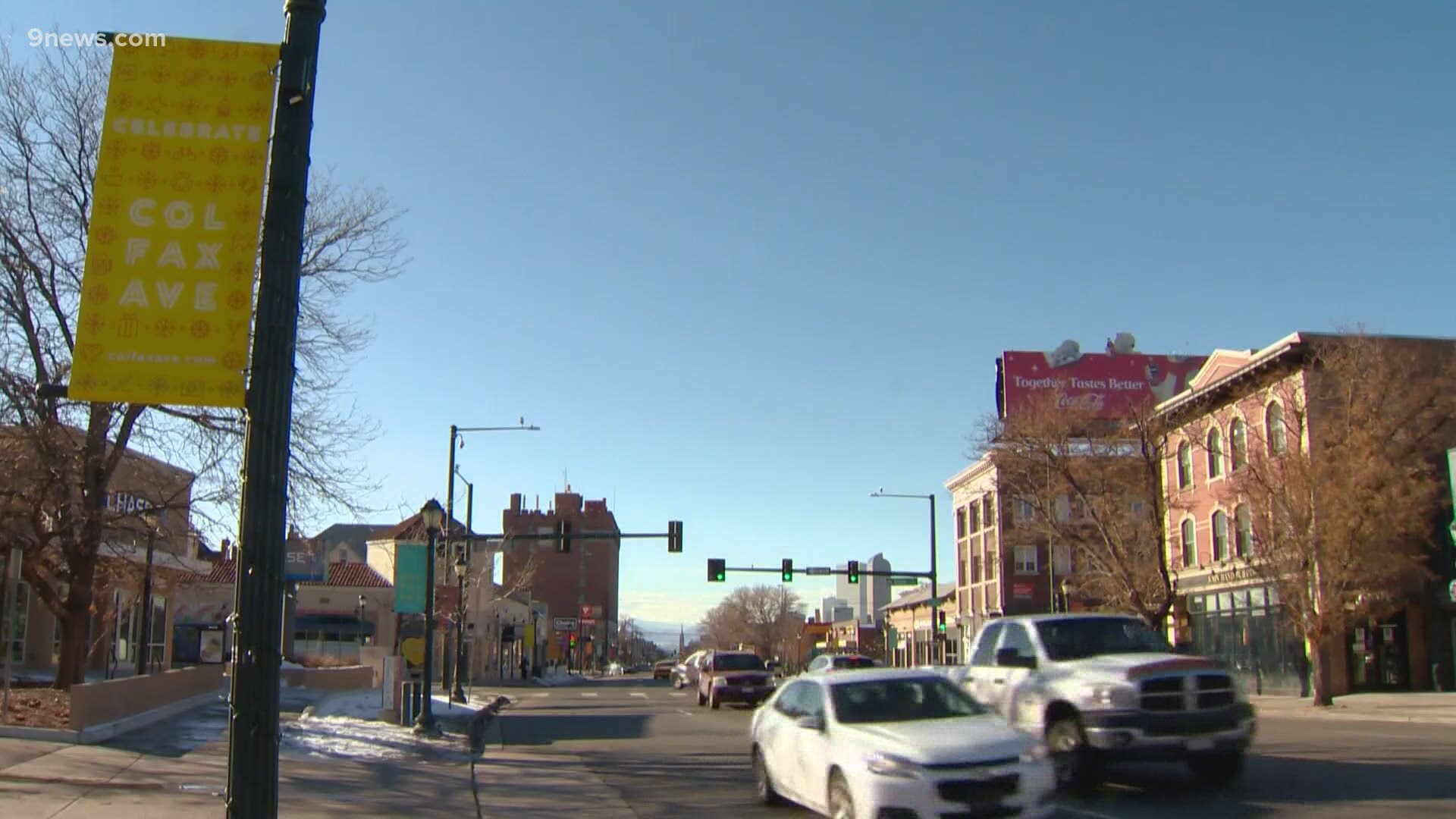DENVER — Denver is reactivating its emergency operations center (EOC) to help deal with what Mayor Michael Hancock called the "twin challenges" of vaccine distribution and economic recovery related to the COVID-19 pandemic.
"The good news vaccinations bring is not enough to rescue and restore our city," said Hancock. "The economic crisis brought on by the pandemic is going to be with us even after our residents are safely vaccinated."
Hancock said the EOC will help address economic recovery while making sure the city is prepared when the vaccine supply is increased and more people become eligible to receive it.
"The emergency operations center will focus our current efforts and infrastructure so we can be as effective and efficient as possible at this critical time," said Hancock. "That includes how we expand broad-based access to the vaccine across Denver's various neighborhoods in locations where people are comfortable going to and to address equity challenges."
Hancock was joined by Department of Public Health & Environment Executive Director Bob McDonald, Office of Emergency Management Executive Director Matt Mueller and Denver Economic Development & Opportunity Executive Director Eric Hiraga for the briefing Thursday morning.
5 Star Program
Denver has been conditionally approved for the state's 5 Star Program, which allows the certified businesses to increase their capacity after meeting certain safety measures, but has not yet implemented the program because COVID-19 numbers are too high.
The two-week cumulative rate needs to be less than 350 people for every 100,000 people, health officials said. It's now at the level, but needs to remain there for at least seven days before the program can actually go into effect.
"We just dipped below 350, and six more days of that and businesses who are certified can move into yellow level restrictions and increase capacity limits," said McDonald. "We're excited about that. We need to be careful, we're going to be thoughtful as we do that. If we start moving through the 5 Star Program and public health restrictions are lifted, we'll have to move quickly to make sure that we do what's necessary to keep our numbers down successfully like we are achieving now."


In the meantime, businesses can begin applying to the program on Feb. 2 at 10 a.m. The first round of applicants will be capped at 500 businesses and is on a first-come, first-served basis.
"Once we get this data from the first 500, depending on how it looks, within days we may be able to say you know we kind of missed the mark for some reason gyms were undersubscribed," said Hiraga."We can do a targeted industry, additional round for that within a few days. Or it could be we missed out on certain neighborhoods."
The second round will open about two weeks later, according to Hancock. Businesses are urged to begin preparing now if they're interested in the program by watching a video that can be found at Denver5star.org.
Unlike most counties with the 5 Star Program, Denver will require businesses to pay a fee to apply. The Denver Economic Development & Opportunity (DEDO) office said businesses that made less than $1 million in 2019 will be charged $25. Businesses that made more than $5 million must pay $150 to apply.
The application fees will help offset the cost of the third-party contractor hired to help roll out the program quickly, DEDO said. DEDO also said it believes fees will also deter applications from outside the county, a problem with previous program roll-outs.
Hancock said the program is a first step toward economic recovery and said he's asked his team to come up with policies to help spur recovery and job creation and hopes to announce new details in the coming weeks
Earlier this month, Hancock said he had sent a letter to the president asking that local governments have more access and control over the vaccine distribution.
City leaders said they want to focus on underserved communities and hope to have a map online soon to show where people can get vaccinated. Right now the city gets about 8,000 vaccines per week and they're working to vaccinate members of group 1B, with the focus currently on those age 70 and older. By March, the city hopes to begin vaccinating essential workers, such as teachers, who are eligible in that 1B group.


"When you think about equity, it's not enough just to think about having many many sites that people can access," said McDonald. "We need to be thinking about using venues that people are comfortable going to and we need to think about the registration process. The pre-registration process is difficult for some. Some members of our community don't have the tools to do that.
"We're working hard to remove those barriers to get everybody vaccinated, particularly our most vulnerable population."
City leaders also stressed that the vaccine is free and that insurance is not required to get it.
"There are efforts to defraud people by suggesting they pay to help them get the vaccine," Hancock said. "The vaccine is free, and the more we spread that information, the more we can protect individuals, particularly those who are in our older adult communities."
SUGGESTED VIDEOS: COVID-19 Coronavirus


